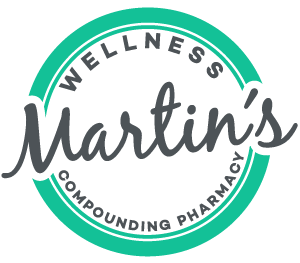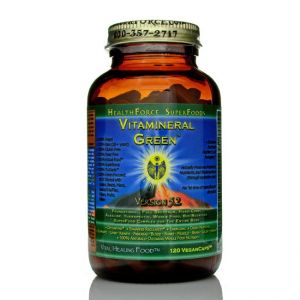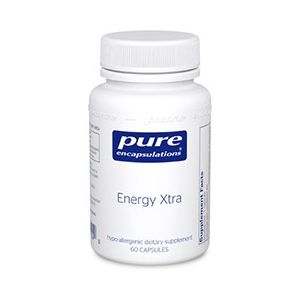Best Vitamins & Supplements for Energy Deficit
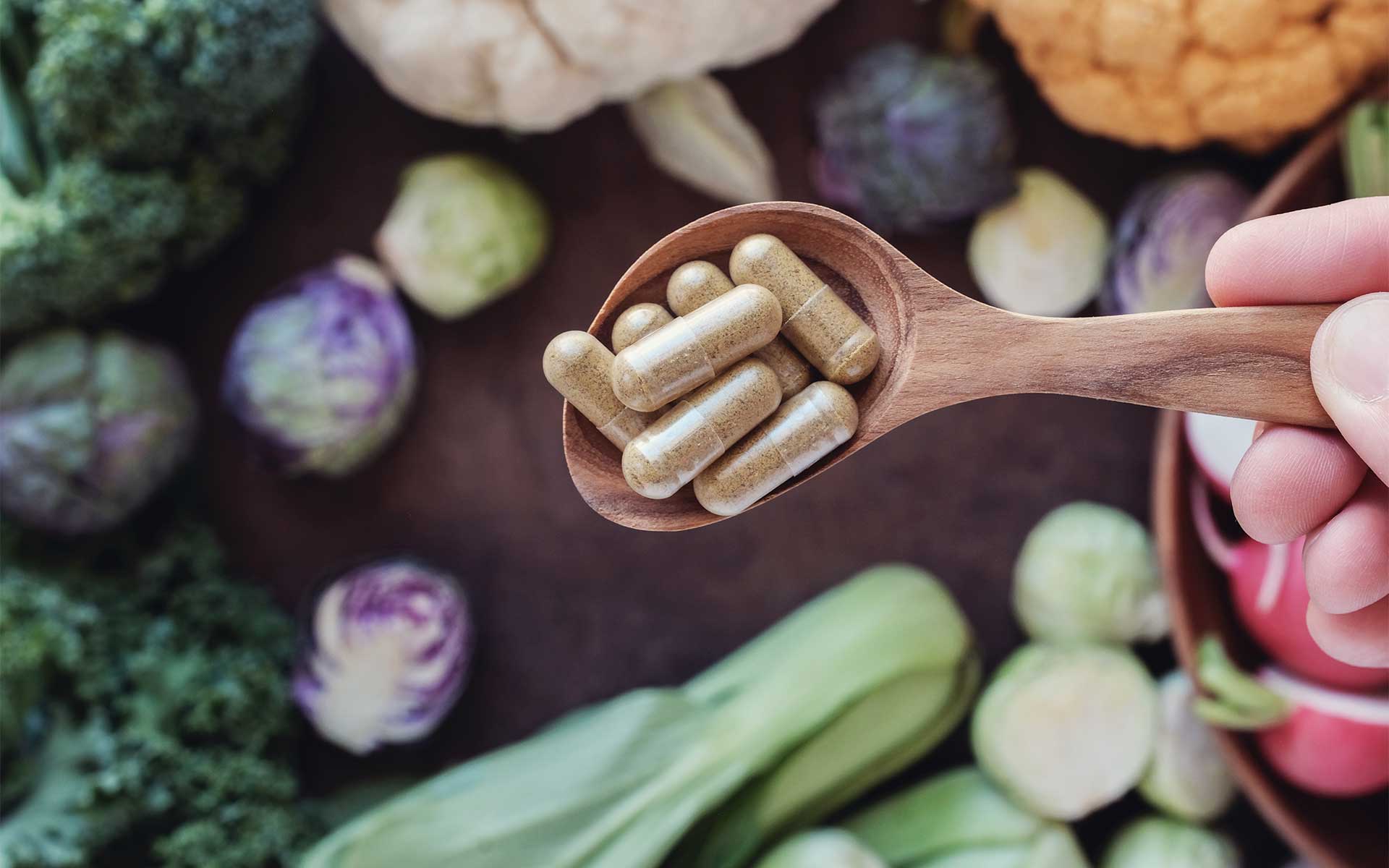
Have you ever seen an elementary school release at the end of the day? The doors open, and kids of all ages and sizes come streaming outside, full of exuberance and excitement. At their age, energy is boundless! However, as we age, life’s demands can drain energy levels, especially if eating a balanced diet, getting a good night’s sleep, and regularly exercising aren’t always possible.
Fortunately, there are vitamins and supplements available that can help correct energy slumps. In today’s blog post, we’re discussing everything you need to know about the vitamins and supplements that can help combat tiredness, increase energy levels, and help energize the body’s systems naturally - while also clearing up a few common misconceptions about some of these energy-boosting supplements and vitamins. In all, we will cover the following topics:
Can Vitamins and Minerals Help with Fatigue?
For many adults, a cup of coffee is often the go-to for a pick-me-up in the morning, afternoon, or throughout the day. However, although caffeine may offer a short-term energy boost, the effects aren’t lasting and can actually make you feel more exhausted in the long run. Therefore, many turn to vitamins for energy and tiredness relief. However, these supplements for energy aren’t a silver bullet for lack of energy, despite what some labels may promise.
Everybody is different. From lifestyle to diet, many factors contribute to energy loss, especially as we age. However, what works for one doesn’t guarantee success for another, which is one reason why it's best to speak to your pharmacist or physician before beginning any new supplementation routine.
Furthermore, just because a supplement is labeled as natural doesn’t necessarily make it safe. Many supplement dosages can include more than the minimum daily requirement your body needs, which can be toxic and cause side effects that can include: headaches, diarrhea, nausea, stomach problems, or even liver damage. Again, further reason to consult with your pharmacist or physician first.
So, do vitamins provide energy in the first place? Yes, there are many situations where a lack of a specific vitamin or nutrient can lead to fatigue and tiredness. Whether it's an age-related or lifestyle-related depletion, taking vitamins and supplements to boost energy is definitely possible, so let’s take a closer look at the best energy vitamins and how they can help with overcoming fatigue.


Curious about what vitamins give you energy naturally? Then let’s talk about the big three: B, C, and D. Each of these vitamins affect the body differently, but they are all associated with natural energy-boosting properties.
Vitamin B12
All of the B vitamins, including vitamin B12, help transform consumed food into energy the cells can use. Vitamin B12 also helps keep your body’s nerves and blood cells healthy, along with helping prevent a type of anemia that can cause weakness and fatigue. Many foods naturally contain Vitamin B12, such as animal proteins like meat, fish, and dairy products. Therefore, many adults meet their B12 needs through consuming these foods or others that are fortified with the vitamin.
However, there are some people who may not get enough through diet, such as vegans, or have the ability to absorb enough. The latter is common in adults over 50 or who have a gastrointestinal order that interferes with absorption.1
Vitamin D
Vitamin D (a.k.a., the sunshine vitamin) is made by skin that is exposed to the sun’s UV rays. It can also be found in foods like egg yolks and fatty fish. Vitamin D helps the body absorb calcium, which is vital to bone health. It also appears to aid mitochondria (the part of a cell that produces energy) in using oxygen, thereby powering various parts of the body, including muscles, and helping maintain energy levels.
A large population of people suffer from low levels of vitamin D, especially the elderly or those living in areas with minimal sunshine, which can affect bone health, increase the risk for certain illnesses, and cause muscle pain and weakness. However, studies have demonstrated that a vitamin D deficiency can be corrected with supplementation to significantly improve fatigue in otherwise healthy persons.2 A pharmacist or doctor can test Vitamin D levels, which is recommended before beginning a course, as too much Vitamin D can be harmful.
Vitamin C
Vitamin C is best for its immune boosting functions. However, it’s also critical to the synthesis of carnitine, a molecule that helps transport fatty acids to the mitochondria, the energy producing part of cells. Therefore, a vitamin C absence can prevent the body from converting fats and other food sources into energy.
Vitamin C is not naturally produced by the body, which is why eating a diet that includes vitamin C is so important. Foods rich in this vitamin include green peppers, watermelon, citrus fruits, tomatoes, strawberries, sweet potatoes, white potatoes, and broccoli. Supplementation may be recommended for those that cannot obtain enough Vitamin C via foods.


Aside from healthy amounts of vitamins B, C, and D, there are additional supplements that can help boost energy as an alternative to caffeinated or energy drinks. The following 13 natural energy supplements top our list, and although you have likely heard of most of them, there may be a few new surprises. Keep reading to learn how these supplements to increase energy interact with our systems to help fight fatigue.
Magnesium
Magnesium is one of the most abundant minerals found in the human body. It's required for more than 300 different biochemical reactions, such as muscle and nerve function, blood glucose control, and energy production. Magnesium is naturally absorbed through foods like nuts, seeds, whole grains, and dairy - and just a few servings a day of these foods can provide enough for your body’s daily needs.
Iron
Iron is an essential mineral that helps the body produce hemoglobin, a protein in red blood cells that transports oxygen from your lungs to the organs and tissues throughout your body. Without adequate levels of iron, your red blood cells cannot effectively carry oxygen to the body’s tissues.
Low iron levels can cause anemia, which leaves the body feeling fatigued and weak. The richest food sources for iron are meat and fish; however, iron can also be found in nuts, beans, lentils, spinach, and fortified grain products. Iron deficiency anemia is common after heavy blood loss and in women who are pregnant or experience heavy menstrual cycles. An iron supplement can help boost hemoglobin levels and fight fatigue when iron levels are tested by a doctor or pharmacist and found lacking.
Zinc
Zinc helps the body with DNA production, cell growth, and immune system health. The body only needs small amounts to achieve these effects - most of which are naturally obtained through foods rich in zinc like meats, poultry, and seafood. When it comes to this mineral, it’s best to consult a doctor or pharmacist before supplementing, as too much can cause nausea or diarrhea, as well as interfere with the body’s ability to absorb iron and copper.
Coenzyme Q10 (CoQ10)
Coenzyme q10 (a.k.a., CoQ10) is present in all cells, with the largest concentrations in the heart, liver, and kidneys. The body’s cells rely on CoQ10 to make energy and provide protection from oxidative damage. Therefore, low levels of CoQ10 can affect the cell’s ability to produce the energy they need to grow and stay healthy, which may contribute to fatigue.3
Although fish, meat, and nuts contain Coenzyme q10, most people with low levels also require supplementation to raise them to acceptable levels. These populations often include the elderly, people with heart failure, certain cancers, or type 2 diabetes.
Creatine
Creatine is an amino acid naturally found in red meat, pork, poultry, and fish, and it acts as a source of “quick energy” in the body. It’s one of the best supplements for energy, especially for those who regularly perform high-intensity, short-duration exercises, and here’s why. During physical activity, your body uses Adenosine triphosphate (ATP) for energy. However, during this process, ATP loses a phosphate group and becomes adenosine diphosphate (ADP). Therefore, creatine supplementation lends its phosphate to ADP so it can revert back to ATP, i.e., energy.
L-theanine
L-theanine is a naturally occurring amino acid found in tea and some mushrooms, and it is purported to promote relaxation without drowsiness. It has also been shown to improve energy and cognitive performance when combined with caffeine.4 Studies suggest that adding L-theanine to coffee can help achieve the energy-boosting benefits caffeine provides without “jittery” side effects.5
Ashwagandha
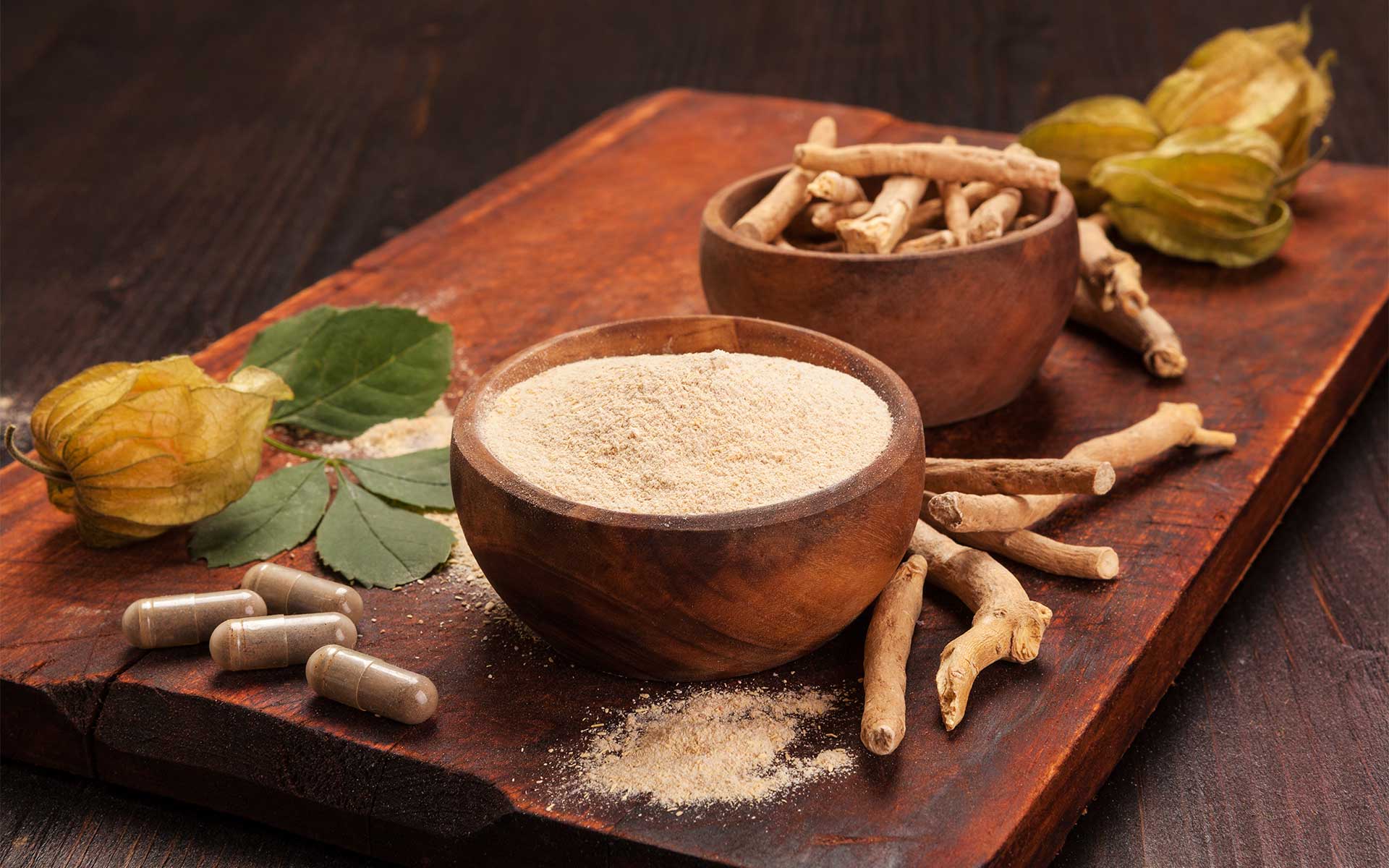

Ashwagandha is prominent in Indian Ayurveda, one of the world’s oldest medicinal systems. It is thought to enhance the body’s resilience to physical and mental stress, thereby increasing energy.6 Studies have shown Ashwanga to lower cortisol levels ( a hormone that releases in response to stress) and alleviate fatigue associated with exercise.7
Rhodiola Rosea
This herb grows in cold, mountainous regions and is commonly used as an adaptogen, which is a natural substance that enhances your body’s ability to cope with stress. Studies have demonstrated that Rhodiola rosea can enhance physical performance and ease mental fatigue with a low risk of side effects.8,9
Melatonin
Melatonin is an important naturally occurring hormone in the body that assists the body’s sleep cycle by elevating levels in the evening and lowering them again in the morning. Studies have shown that supplementing with melatonin may be an effective way to improve concentration and energy while reducing fatigue in subjects suffering from sleep disorders.10
Citrulline
Citrulline is naturally occurring in watermelons, and it has been shown to increase nitric oxide in the body. Nitric oxide acts as a vasodilator, which widens the inner muscles of blood vessels to support circulation and the flow of blood, oxygen, and nutrients throughout the body. So, when the ability to produce nitric oxide is limited, physical weakness and lack of energy can occur.
Therefore, as a precursor for nitric oxide, citrulline supplements can play a role in boosting energy levels by increasing the availability of oxygen and nutrients to the body’s cells.11
Beetroot Powder
Beetroot contains a compound called nitrate, which also relaxes blood vessels and increases blood flow and oxygen delivery. When used as a supplement, beetroot can increase oxygen delivery throughout our systems, allowing the body to exercise longer before getting fatigued.12
Ginkgo Biloba
Ginkgo contains high levels of flavonoids and terpenoids, which are compounds known for their strong antioxidant effects and the likely source of health claims around this herb extracted from the ancient Chinese tree of the same name. Like citrulline and beetroot powder, ginkgo biloba has been shown to increase circulation, which may affect energy levels.13
Ginkgo biloba is also widely associated with increased mental performance and perceived well-being; however, the scientific data around these claims are inconsistent.
Tyrosine
Tyrosine is an amino acid that is naturally produced by the body and is found in most high-protein foods, like chicken, eggs, and dairy products. Tyrosine supports neurotransmitter production (the chemicals that transmit messages in your brain), which are thought to decline during demanding mentally and physically activities and negatively affect concentration and energy levels.<sup>14</sup>
Some studies have shown that tyrosine supplements may help increase alertness and energy levels in addition to restoring memory and clarity in sleep-deprived people.15
Martin’s Wellness carries an extensive line of natural supplements designed to complement whole health and individual functions, including energy support. The following energy boost supplements are our most popular for reducing fatigue, increasing stamina, and supporting overall energy levels: Vitamineral Green, Energy Xtra, and Pure Essence.
It’s essential to remember that a healthy lifestyle consisting of quality sleep, a healthy, well-balanced diet, and regular exercise is the best way to achieve optimal health. However, lifestyles and other factors often interfere with healthy pursuits, resulting in feeling less than your best.
Although it’s easy to opt for a supplement to support deficiencies, it’s important to consult a doctor, functional medicine practitioner, or another health professional regarding individual deficiencies before starting a new supplement. As mentioned throughout this post, some vitamins and nutrients can be harmful when consumed in large doses. Furthermore, if any new vitamin or supplementation routine causes adverse reactions, such as nausea, diarrhea, headaches, or vomiting, contact your doctor or health professional immediately.
